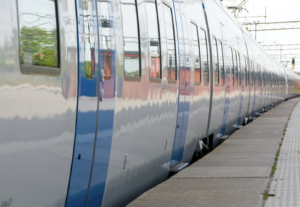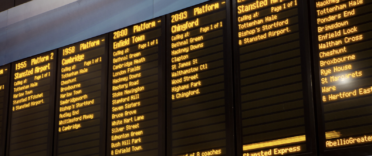
How much is the rail fare increase?
The Department for transport used the inflation rate from July 2021 and so commuters in England and Wales can expect to see regulated rail fares increase by up to 3.8%. While the increase is disappointing for many, commuters have avoided an even steeper rise thanks to the government introducing a rail fare price cap. Without the price cap in place, commuters could have seen fares rise as much as 8.8%, had the normal process of applying the Retail Price Index (RPI) + 1% been followed.
The highest rate of increase at 3.8% can be seen in the cost of rail travel between Brighton and London which has increased by £194, from £5,108 to £5,302, Liverpool to Manchester which increased by £105, from £2,760 to £2,865 as well as many other routes across the UK.
Why are rail fares increasing?
Rail travel is down by almost a third from pre-pandemic levels and the increase in fares has been met with fierce criticism from pressure groups campaigning for better transport. In addition, the opposition party in parliament have criticised the rail fare increases saying they put added pressure on people already struggling with the cost of living and hinders people returning to work in city centres, spending money on the high streets and giving the economy the vital boost it needs.
The DfT responded by explaining that the £14 billion investment from the government used to keep rail journeys running during the pandemic needs to be recouped and that they have used the lowest measures of increase that they could in light of the increased cost of living.
What to do if you are affected by the rail fare increase
With petrol prices at a record high, we have provided a few alternatives that could reduce the cost of your commute in the face of the recent rail price hike:
- Ensure that you’re using the most cost-effective route for your commute
- Flexi-season tickets can reduce the cost of travel if you are not travelling for a full working week - check out our article on flexible season tickets
- Ask your employer for flexible working to reduce the number of days you travel by rail





